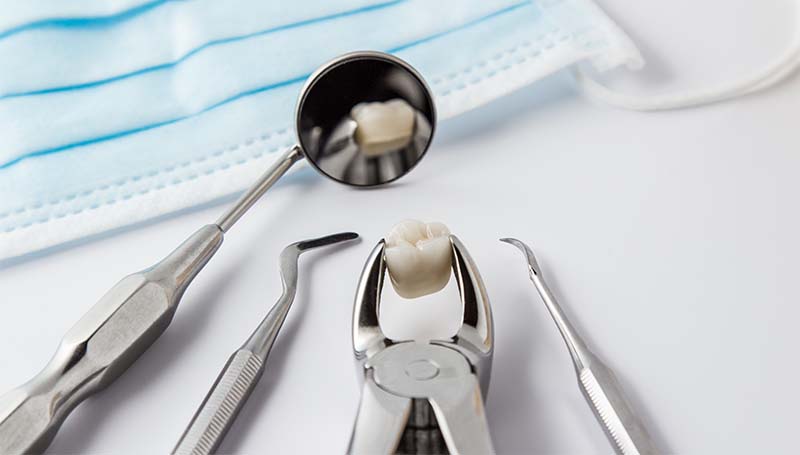
Leave a message

Tooth removals are a common procedure and are necessary when a tooth cannot be repaired.
Once our adult teeth set in, they're meant to last for life. However, injuries, poor oral hygiene, diseases and other factors play a role in the overall health of our teeth. Often there is no solution but to remove a tooth and replace it with a dental implant to maintain the integrity of the existing teeth and jaw.
You may need a tooth extraction for several reasons:
Dr Borman will obtain a full medical and dental history and any medications you are currently on, including vitamins, over-the-counter medications, supplements and those you are allergic to. He will then perform a physical exam and X-ray to determine the best way to remove the impacted tooth.
It may be necessary for you to take antibiotics, either before or after surgery, or both, depending on the length of the surgery. Dr Borman will discuss this with you prior to the procedure.
Dr Borman will numb the area around the affected tooth or teeth using local anaesthesia. He will firmly rock the tooth back and forth to help loosen it. You should not feel any pain but may experience some pressure during the procedure.
Surgical extraction may be necessary when the affected tooth has not grown through the gum or developed in the mouth. During this procedure, Dr Borman will make a small incision into the gum to gently remove the tooth. After the tooth is removed, Dr Borman will stitch the gum.
Dr Borman will place a piece of gauze on the affected area and ask you to bite down for 20-30 minutes to form a blood clot. This is essential for the area to heal and must not be dislodged.
You may experience some minor bleeding after the surgery, but Dr Borman will provide you with proper care instructions.
It can take up to 2 weeks for the site to close up and heal, but the bone and soft tissue will only regrow after 3 to 6 months.
There are several tips to remember when looking after the tooth extraction site at home:
Our team is highly trained and has years of experience assisting patients with their tooth extraction procedures.